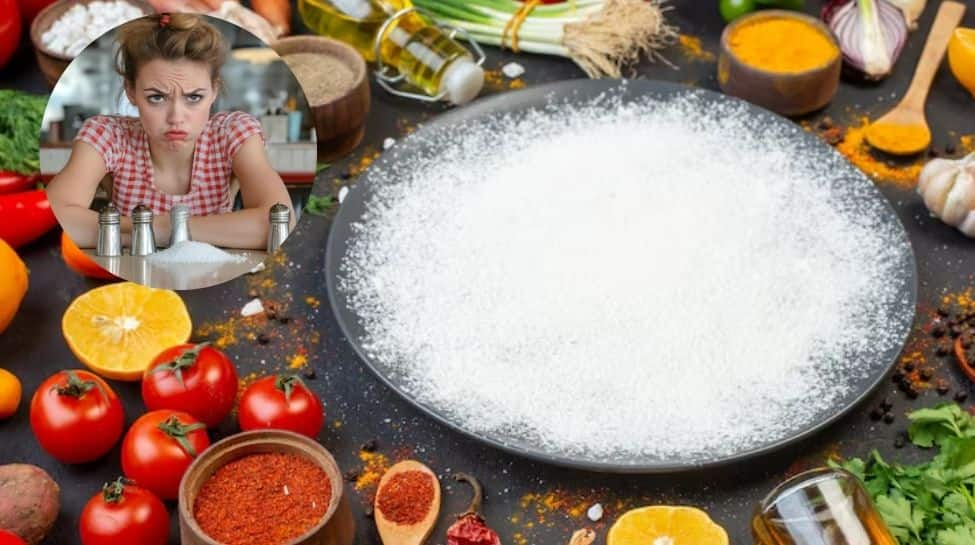Salt is an essential part of our diet—vital for nerve function, fluid balance, and muscle contraction. However, when consumed in excess, salt (specifically its sodium component) can silently wreak havoc on your health, especially your heart. Despite being a common kitchen staple, salt is also one of the most significant contributors to cardiovascular diseases worldwide. So, how much salt is too much, and what does it do to your heart?
How Much Salt Should You Consume?
Health authorities recommend the following daily sodium intake:
- World Health Organization (WHO): Less than 2,000 mg of sodium per day (about 5 grams or one teaspoon of salt).
- American Heart Association (AHA): Ideally, no more than 1,500 mg of sodium per day for most adults.
- Average global intake: Between 3,400–4,000 mg per day — well above the recommended limits.
This means that many people are consuming nearly double the recommended amount of salt each day, often without realizing it.
Where Does All the Salt Come From?
Contrary to popular belief, most of the salt we consume doesn’t come from the salt shaker—it’s hidden in processed and restaurant foods. Common high-sodium items include:
- Packaged soups and sauces
- Breads and rolls
- Deli meats and cured meats
- Cheese
- Fast food and frozen meals
- Snack foods like chips, crackers, and salted nuts
Reading nutrition labels and paying attention to portion sizes are crucial for monitoring your sodium intake.
Dr. Parin Sangoi Consultant Interventional Cardiologist, Wockhardt Hospitals says, “Most individuals believe they eat minimal salt since they do not add much to food at the dinner table.However, the actual culprit is packaged and processed foods ,breads, soups, sauces, breakfast cereals that contain concealed sodium. Excessive consumption slowly increases blood pressure, hardens arteries, and leads to heart attack or stroke. The problem is that we tend not to know how much we are taking in every day. Reading food labels, selecting fresh rather than packaged food, and adding flavor to meals with herbs or spices rather than added salt are easy but effective moves. Maintaining daily sodium consumption in check is also a good idea for heart health small changes do make a big impact.”
How Excess Salt Affects Heart Health
1. Raises Blood Pressure
The most immediate and well-documented impact of excess salt intake is high blood pressure (hypertension). Sodium causes the body to retain water, which increases the volume of blood in your arteries. This raises blood pressure, putting extra strain on your heart and blood vessels.
2. Damages Blood Vessels
Over time, high salt intake can stiffen and narrow the arteries. This condition, known as arterial stiffness, increases the risk of heart attack, stroke, and other cardiovascular complications.
3. Increases Risk of Heart Failure
Studies have shown that excessive sodium consumption is linked to a greater risk of heart failure. High blood pressure forces the heart to work harder to pump blood, which can lead to the thickening of the heart muscle and eventual heart failure.
4. Affects Kidney Function
Since kidneys help regulate sodium levels, a high salt diet can impair kidney function. Poor kidney function, in turn, contributes to fluid retention and high blood pressure, forming a dangerous cycle that burdens the heart.
Who Is Most at Risk?
While high salt intake can affect anyone, certain groups are more vulnerable:
- People with hypertension or prehypertension
- Individuals over the age of 50
- People with chronic kidney disease
- African Americans, who are statistically more salt-sensitive
Those with a family history of heart disease
Tips to Reduce Salt Intake
- Cook at Home More Often: Homemade meals allow you to control the salt content.
- Choose Fresh, Whole Foods: Fresh fruits, vegetables, and unprocessed meats are naturally low in sodium.
- Read Food Labels: Look for “low sodium” or “no added salt” options.
- Rinse Canned Foods: This reduces the sodium content of beans and vegetables.
- Use Herbs and Spices: Season food with garlic, lemon juice, vinegar, or herbs instead of salt.

